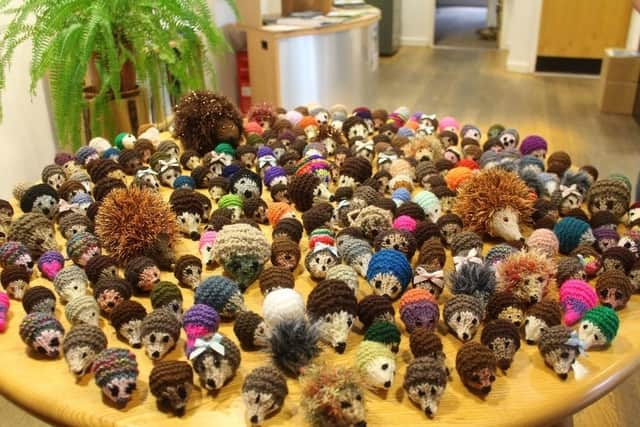Get knitting! Here's how you can help Lancashire Wildlife Trust make a very unique impact when they meet MPs
and live on Freeview channel 276
On October 26, Lancashire Wildlife Trust is a holding a parliamentary reception along with Cumbria and Cheshire Wildlife Trust.
The attending MPs will be learning about the breadth and depth of their work across the North West, as well as speaking to a group of passionate young people from across the region.


These are the insect-eating plants that have been reintroduced to Lancashire after 100 years
Advertisement
Hide AdAdvertisement
Hide AdThe aim is for every MP that attends to take from the event how much nature matters to people. As a small reminder of this, the Trusts plan to present every MP with a small hand-knitted nature creature - any animal, insect, bird or plant that thrives in our region.
But they need your help
If you are a whizz with knitting, crocheting or crafting and can make a creature that fits into the palm of a hand, the Trust would like you to help.
The creatures can be any animal, insect or bird that thrives in our region such as owls, butterflies and bumblebees.
The creatures can be dropped off at the Trust’s head office, posted, or given to staff members.
If posting, please address to Catherine Haddon:
Advertisement
Hide AdAdvertisement
Hide AdThe Wildlife Trust for Lancashire, Manchester & North Merseyside,
The Barn,
Berkeley Drive,
Bamber Bridge,
Preston,
PR5 6BY
Why do this?
A spokesman for the Trust said: “In terms of why we are going down the knitted route, we think that asking people who care about nature to spend time knitting something that MPs can take away is much more impactful than just giving away goody bags with bulk-purchased items.
"The time and effort that our kind donors put in to make unique creations will show our MPs that people across our region want them to put nature first, especially as we approach a general election next year.”
Campaigns
The Trust is keen on highlighting several environmental issues, including restoring peatlands, protecting sand dunes, reintroducing wildlife and saving red squirrels.
It is also a passionate advocate of the benefits of nature-based health projects.
To find out more, or to donate to the Trust, visit the website here.